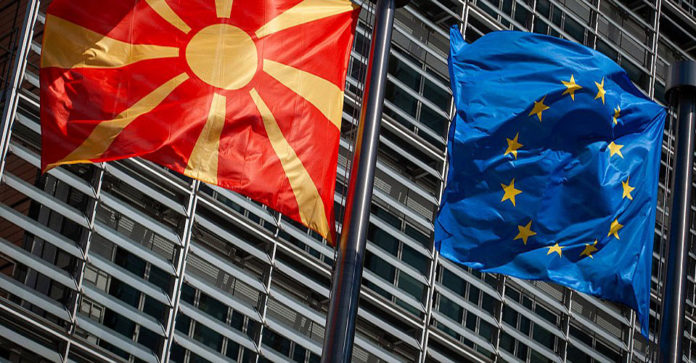The Czech Republic and Slovakia gave a lesson in the European Union, but also a lesson for the Macedonian authorities on how to defend and respect history and language. The two countries backed by Austria blocked EU’s conclusions on enlargement due to inclusion of a history condition.
Germany, as holder of the presidency, tried to include in the conclusions, according to them, a compromise proposal, ie to include the “misinterpretation of history” clause. This proposal, to which no one from the Macedonian government led by SDSM reacted, would mean mandatory acceptance of the Bulgarian condition for history. With that, Macedonia would have to give up the whole history before 1944 and attribute it to the Bulgarian one, if it ever wanted to get a date.
The Macedonian government did not react, but the Czech Republic and Slovakia did.
We will not allow that the Union be the judge of our shared history, how we identify ourselves or the language we use. These issues belong to the parties concerned and we are here to support them with the experience of our own healing processes, the two countries reacted in a joint statement, emphasizing that the conclusions should state the progress or shortcomings of one country, and not such requests.
However, what is the reason for this step of the Czech Republic and Slovakia. They believe that EU allowed Bulgaria to take things too far. This would mean that in the case of enlargement regarding other candidate countries, such conditions could be obtained from any country. For example, Bulgaria can again set such conditions for Serbia or maybe Croatia to the surrounding countries, which is why such a condition in the conclusions is unacceptable.
The move by Slovakia and the Czech Republic to block the EU enlargement conclusions on Macedonia after they were tailored to fit the Bulgarian demands could be partially influenced by the legacy of Ss. Cyril and Methodius. The two 9th century missionaries set off from Macedonia to then Moravia to bring the Gospel and translate the Bible in Church Slavonic. Slovakia even names the two sainted brothers in the preamble to its Constitution, due to their historic role in spreading Christianity among Slavic lands. Bulgaria demands that the two saints, whose mission was supported by the Byzantine Empire, are declared as Bulgarians and claims their work as its own exclusive legacy.
And while others appreciate the significance of history and language, the Macedonian government is persistently looking for a way to please Bulgaria. Prime Minister Zaev as well as the government representative for Bulgaria, Vlado Buckovski, constantly use the term common history and say solution must be find. But if they have not understood, they should understand now.
The Czech Republic and Slovakia have set an example to the Macedonian government that a red line must be drawn, that humiliations, renouncing one’s own history and language and identity must end.






Comments are closed for this post.